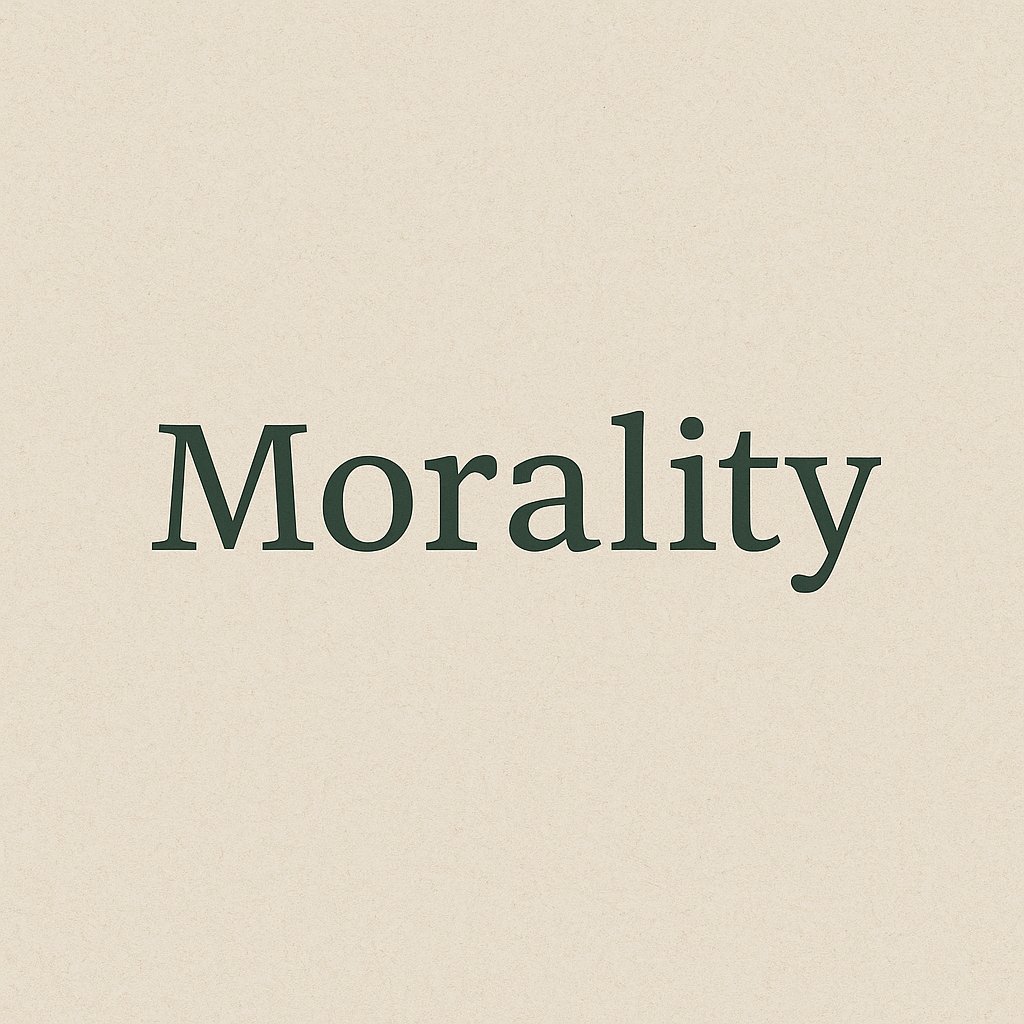I’ve been listening to This is Vegan Propaganda lately. A friend recommended it not forcefully, just quietly, as if to say, “Sit with this for a while.” So I did.
And I haven’t been able to stop thinking about it.
It’s not that I was convinced. It’s that I was unsettled. Something in me resisted, and then something deeper started asking questions:
Is this right? Have I been wrong? If I have — what does that mean?
These are difficult questions, not because the answers are hidden, but because they aren't stable. Right and wrong are supposed to be obvious. But what if they aren’t? What if they change? And what if anything stays the same?
The Problem With Right and Wrong
History is full of things that once seemed normal even noble that now seem unthinkable.
Conquest. Colonisation. Slavery. Honour killings. Child labour. The suppression of women. And yes, perhaps, meat-eating.
These weren’t fringe practices. They were built into cultures, economies, religions.
And they weren’t just tolerated they were morally justified.
Which raises a difficult question:
If morality can change this much, can we trust it at all?
Some people see this and conclude that morality is just a construct a tool of power or preference. Others respond with dogma, insisting that right and wrong are fixed and eternal.
But both views feel insufficient. Because even if moral practices change, something deeper seems to stay.
A Slow, Shifting Foundation
Morality doesn’t shift like fashion. It moves like tectonic plates slow, grinding, barely perceptible. Until one day, something ruptures.
A war that suddenly seems unjust.
A practice that once felt necessary now looks cruel.
A voice you once ignored becomes impossible to unhear.
And the world feels different not because it changed overnight, but because it had been changing underneath you all along.
The details evolve. But the deeper structure seems to remain.
We still value honesty, even when we fail to live it.
We recoil from cruelty, even when we justify it.
We admire courage, sacrifice, and integrity even when they cost us.
There is something in us that knows, even if it’s slow to act.
The Stoic Answer
The Stoics offer a powerful middle path. (My interpretation and understanding).
They believed that morality wasn’t invented it was discovered.
Not imposed by culture or religion, but born from nature and reason.
Virtue lives within us, they said not fully formed, but planted like a seed.
Marcus Aurelius put it simply:
“Stop debating what a good man is. Be one.”
Morality isn’t abstract. It’s personal. It’s daily. It’s embodied.
And yet, the Stoics didn’t claim we could do it alone.
They understood that virtue must be shaped through conversation, humility, and tension with others.
We sharpen our understanding by listening, adjusting, reflecting.
Morality without humility becomes arrogance.
Morality without action becomes performance.
“Don’t explain your philosophy,” Epictetus said.
“Embody it.”
In that way, morality is less about certainty — and more about integrity and humility.
Why We Twist It
Even the worst acts are rarely done with full awareness of their wrongness.
We almost always tell ourselves a story:
I had no choice. It was for the greater good. They deserved it. Someone had to do it.
That’s what makes morality so fragile it bends under pressure.
But that’s also what makes it real because we don’t discard it entirely. We bend it, we shape it, we appeal to it.
We still want to be seen as right.
Which suggests something ancient in us still cares even when we’re getting it wrong.
The Tension That Matters
I don’t know if I’ll stop eating meat. But now, I hear a new kind of tension in myself.
Not guilt, exactly but awareness. The beginnings of dissonance.
And I think that dissonance matters. It’s a sign that something in me is stirring.
Something is asking if the way I’m living is aligned with what I know or what I’m slowly coming to know.
That doesn’t mean I have all the answers.
But maybe morality doesn’t begin with answers. Maybe it begins with the willingness to ask the question again.
Curiosity
The only truly wrong stance is ignorance without curiosity, the refusal to ask, to learn, or to consider that we might be mistaken.
Ignorance is not bliss. It’s blindness chosen.
Aristotle wrote,
“The roots of education are bitter, but the fruit is sweet.”
And morality is a kind of education often painful, often slow, but essential.
Whether you lean toward moral relativism or moral absolutism, the outcome is the same: you must be humble.
If morality is relative, then our current values are provisional. We must stay open, aware that what feels right today may one day feel hollow.
If morality is absolute, then we must admit we are limited. We cannot claim to possess the whole truth only to seek it.
Either way, we are left in the same place: needing to listen, to learn, and to act with humility.
Not because we know we are right but because we know we might not be.
Orientation, Not Certainty
We don’t need a final moral system. We need a moral orientation.
One that lets us live with nuance, but not indifference.
One that lets us be challenged, but not collapse.
One that calls us to examine our lives — even when it’s uncomfortable.
Maybe morality is not a fixed code, but a shifting terrain shaped by reason, refined by others, and anchored by something deeper than opinion. Maybe it is aboslute and unknowable.
Maybe it’s not about being right.
Maybe it’s about being willing to change.
Morality is not a rulebook.
It’s a direction.
And sometimes, it begins when we finally stop defending ourselves long enough to hear what’s been moving underneath.
This post contains affiliate links. If you buy something through them, I may earn a small commission at no extra cost to you.

